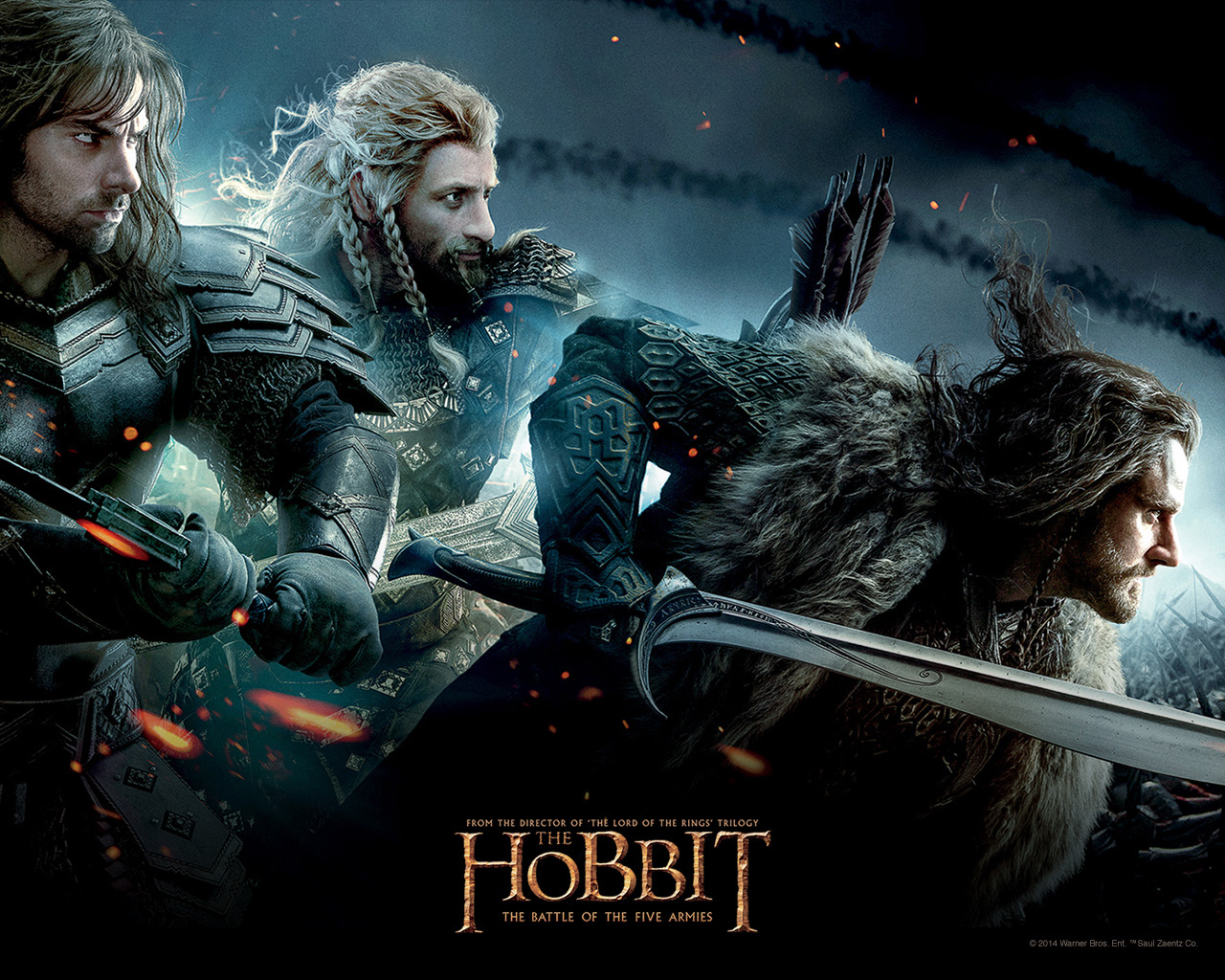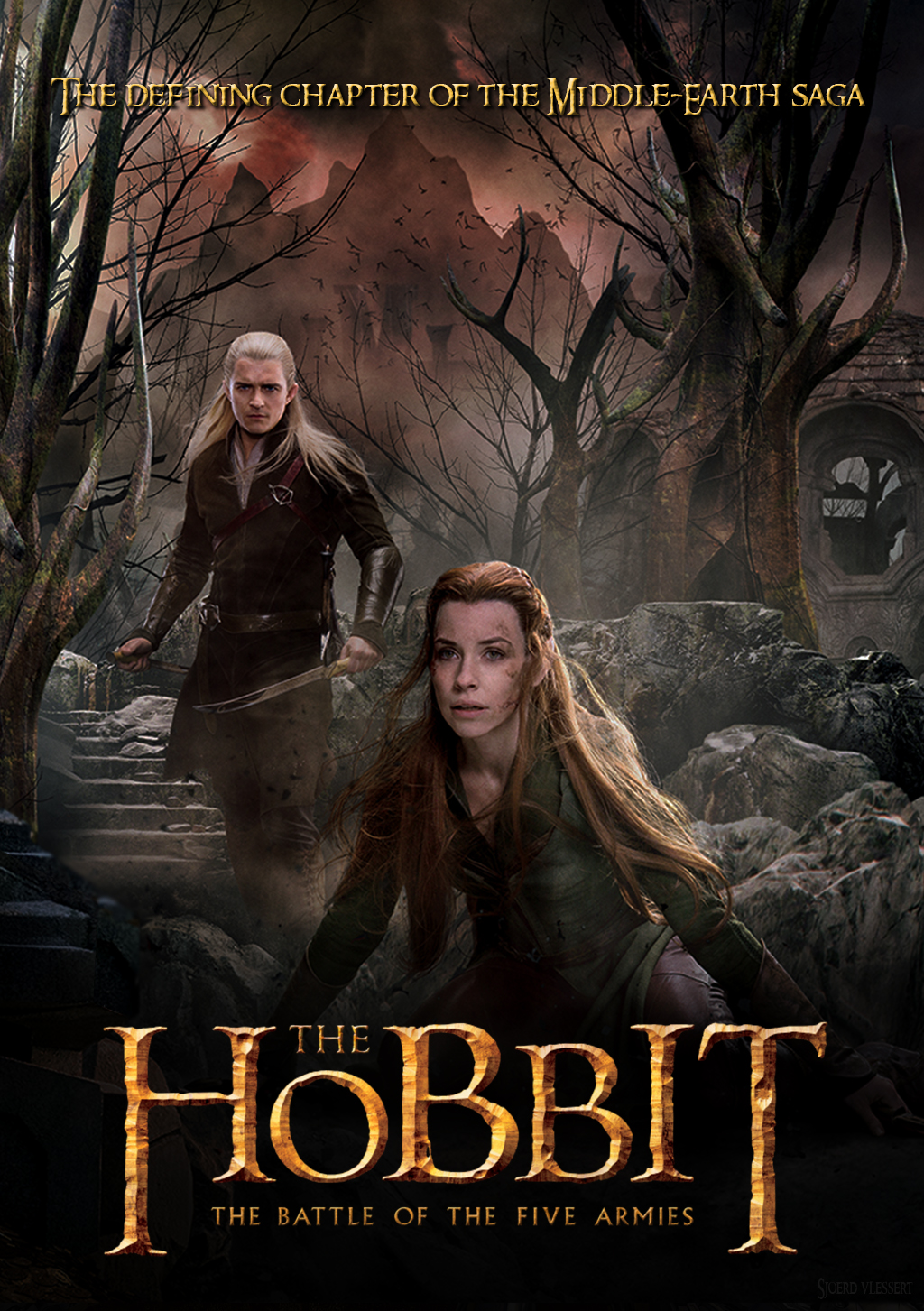
That may sound more negative than positive, but that's only because this final installment seems content to exist right at the cusp between a shoulder-shrugging meh and an adequately mediocre accomplishment. It's not so much that the movie is bad - though it's not great or quite as good as the previous two - as there is a general sense and feel of liberation, that it's finally over after three years and three films imagined from one book. Or better yet, once the dust and smoke settle from the nearly hour-long battle to reclaim the Lonely Mountain, audiences are likely to exhale a sigh of relief than applaud with satisfied enthusiasm. Tolkien's prequel to the battle for Middle-earth saga, 'The Hobbit: The Battle of the Five Armies,' arrives more with a whimper than as the exciting conclusion to the grandiose adventure it originally set out to be. The final chapter in the massive and needlessly overlong adaptation of J.R.R.

Bilbo finds himself fighting for his life and the lives of his friends as five great armies go to war. Sauron, the Dark Lord, has sent forth legions of Orcs in a stealth attack upon the Lonely Mountain.Īs darkness converges on their escalating conflict, the races of Dwarves, Elves and Men must decide – unite or be destroyed. An ancient enemy has returned to Middle-earth. Unable to help Thorin see reason, Bilbo is driven to make a desperate and dangerous choice, not knowing that even greater perils lie ahead. The Dwarves of Erebor have reclaimed the vast wealth of their homeland, but now must face the consequences of having unleashed the terrifying Dragon, Smaug, upon the defenseless men, women and children of Lake-town.Īs he succumbs to dragon-sickness, the King Under the Mountain, Thorin Oakenshield, sacrifices friendship and honor in search for the legendary Arkenstone.

“The Hobbit: The Battle of the Five Armies” brings to an epic conclusion the adventure of Bilbo Baggins (Martin Freeman), Thorin Oakenshield (Richard Armitage) and the Company of Dwarves.


 0 kommentar(er)
0 kommentar(er)
